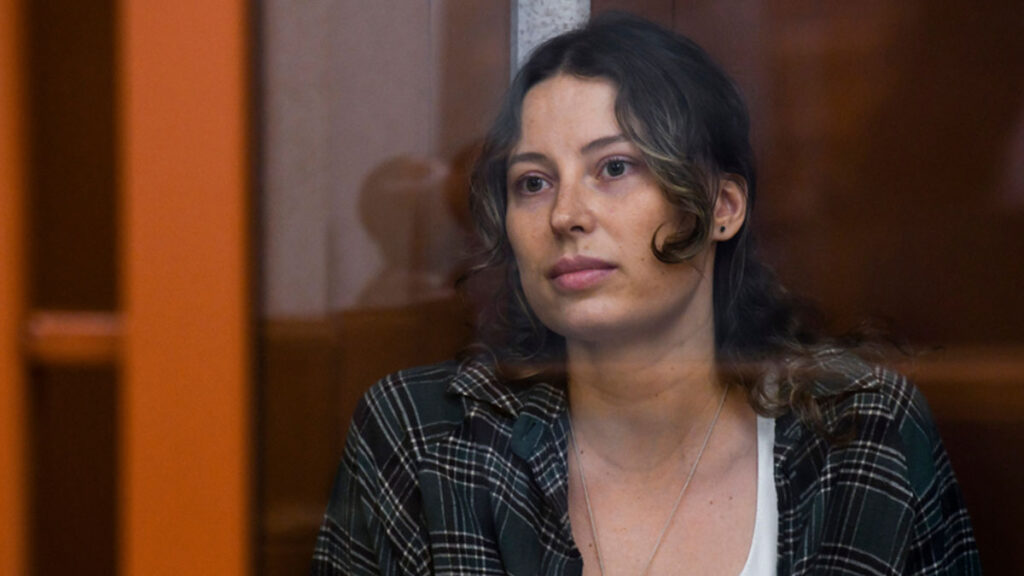In a harrowing turn of events, Ksenia Karelina, a Russian-American ballet dancer, faces a severe 15-year prison sentence in Russia. Her crime? Donating a mere $51 to a pro-Ukraine charity. This seemingly small act of compassion has led to charges of treason, highlighting the extreme measures taken by the Russian government to suppress any form of dissent or support for Ukraine.
Karelina, who has dual citizenship in the United States and Russia, was detained in Yekaterinburg while visiting family. The arrest, which took place in February, came shortly after her arrival in Russia. The charges stem from her donation to Razom, a New York-based charity that provides non-military aid to Ukraine. Russian prosecutors allege that the funds were used to purchase tactical supplies for the Ukrainian army, a claim that has been met with widespread disbelief and condemnation.
Her lawyer, Mikhail Mushailov, has criticized the severity of the proposed sentence, emphasizing Karelina’s cooperation with the investigation. Despite her guilty plea, Mushailov argues that a 15-year sentence in a penal colony is disproportionate to the nature of her actions. He also noted that Karelina could not be included in a recent prisoner exchange between Russia and the West, as her verdict had not yet been finalized.
The timing of Karelina’s trial is particularly significant, coming just after the largest prisoner exchange since the Cold War. This exchange saw 24 individuals from various countries, including US journalist Evan Gershkovich, released in a complex swap. The exclusion of Karelina from this exchange has left her supporters, including her partner Chris Van Heerden, feeling despondent but determined to fight for her release.
Van Heerden has been vocal about the injustice faced by his girlfriend. He recounted how Karelina, confident in her Russian heritage, believed she would be safe traveling to Russia despite the ongoing war in Ukraine. Her arrest has shattered that confidence and plunged her into a legal nightmare.
The crackdown on dissent in Russia has intensified since the invasion of Ukraine in February 2022. President Vladimir Putin has increased the maximum sentence for treason to life imprisonment, reflecting the government’s hardline stance against any perceived support for Ukraine. This has created a perilous environment for individuals like Karelina, whose benign actions are interpreted as threats to national security.
The case has drawn international attention and condemnation. Human rights groups and legal experts argue that Karelina’s donation to a humanitarian cause should not be equated with treason. The harsh response from the Russian authorities is seen as part of a broader strategy to silence critics and deter any support for Ukraine.
As Karelina awaits her sentencing, her future hangs in the balance. The ballet dancer, who had built a life in Los Angeles and gained American citizenship in 2021, now faces the prospect of spending the next 15 years in a Russian penal colony. Her plight serves as a stark reminder of the high stakes involved in the geopolitical tensions between Russia and the West, and the devastating impact these tensions can have on individuals caught in the crossfire.
ACZ Staff: The extremism of a totalitarian government comes into play, as human rights are trampled in this case. 15 years for a $51 donation? Absurd…tragic. But we see some of the same in the U.S. Did you know there are some still in prison from the Jan 6, 2021 protests, who have not even been charged yet?
